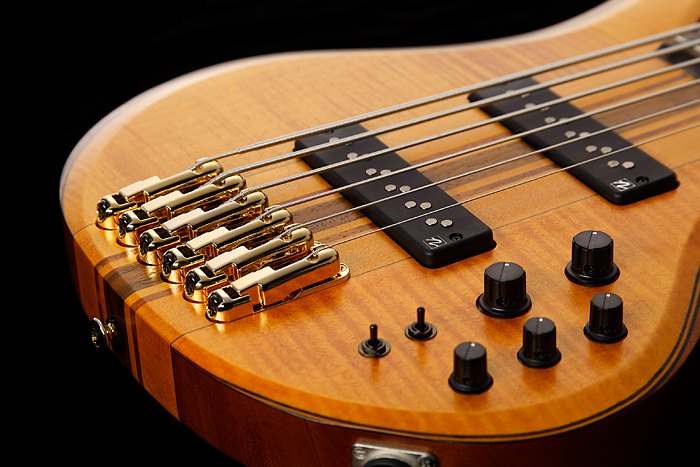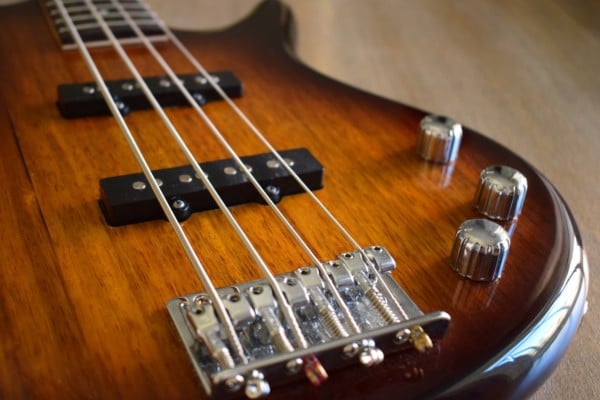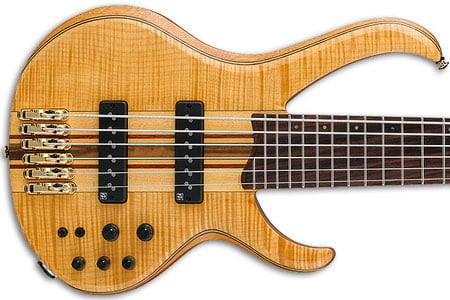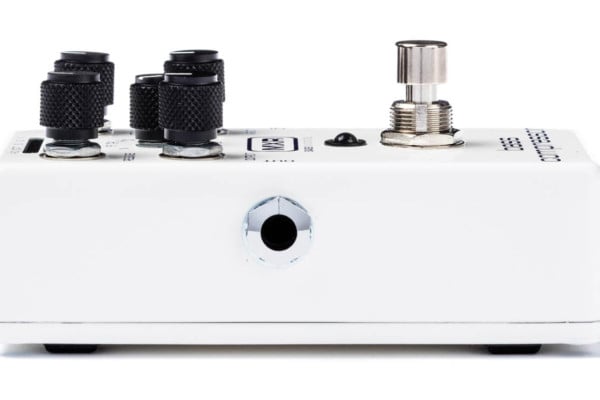Switching Between 4, 5, and 6-string Basses

Q: How do you switch between 4/5/6 strings when the low E has been ingrained in my memory? I’ve been trying for many years and still get notes mixed up when I change basses.
A: Personally, I went from 4-strings to 6 in college. I made the switch and only played that 6 for years. Now, either bass feels like home. Strangely, I only get occasionally confused when on a 5 because I’ve never had one (except for a lovely Zon 5 fretless that I use on recording sessions. The bass sounded too good not to pick up. But, I only use that bass a few times a year as I don’t play all that much fretless).
I think we could make a parallel to learning a new language. Sure you can pick up a few phrases and remember them but, if you really want to speak comfortably, you have to fully immerse yourself. Full-immersion is the key. You need to live in that space and speak only that language until it comes without thinking too hard about it. Only then could you hope to switch back and forth without the struggle.
When I made the switch, I played ONLY that 6-string for quite a few years before I came to also enjoy the 4 in various contexts. I also had the benefit of being in a collegiate music program, which meant that I was shedding constantly, reading music daily, and just getting into chord shapes and exploring improvisation. This meant that I was digging into the new instrument about as hard as one can.
It took me a few weeks to not feel like I was completely lost most of the time, a few months before I felt relatively comfortable, and finally, a few years before it truly felt like home.
Once I reached that point, I could switch back and forth without a thought. Each bass felt like home and my brain adjusted automatically (never getting confused because the E was no longer my lowest string, etc.)
When I do get confused playing a 5, it’s usually when soloing and it’s because my brain sees more than 4 strings, and automatically tried to adjust to 6, assuming that I have a C string (or low B when I tried stringing a 5 string with a high C). Playing bass is fine because I’m not moving around as much and I’m typically hanging in the lower registers so, when tuned B-G, it’s just like my 6. It’s only when I jump up high to try and create melodies that I keep thinking that my G string is a C string).
But again, that’s only because I’ve never had a 5 that I played daily. I’ve always grabbed the 4-string for most gigs that didn’t require a lot of heavy reading or soloing. I prefer the 6-string for that as I have more range in each position (which helps for reading) and I learned how to solo on a 6, so it’ll always be more comfortable to me in that kind of setting.
I’m not necessarily suggesting that you bring your new 7-string to the blues jam (but you could, I don’t care what anybody says. As long as the time, tone, feel, and lines are happening, I don’t care if you’re playing a 12-string with your toes… but you may get a wary eye from the other folks in the room before you play) but, truly, the real key to making ranged instruments of various types feel like home is living in that space for long enough or it to become home (and doing it long stretches. I wouldn’t do all of your shedding on a 6 and then gig each night on the 4. You really need to absorb its intricacies and nuances and explore the instrument in different settings to get to know it.
Give it time. You won’t lose your 4-string chops or comfort just because you play the 5 or 6 exclusively for months at a time. Just get to know each instrument on its own for a while.
I’ve known some young players of means that have an assortment of ranges basses and kind of pick the ‘bass of the day’ when shedding or playing with people and they never really seem to get entirely comfortable on any of them.
The same holds true for instruments of the same range! Your playing changes when you have an intimate relationship with an instrument. When you know every noise it makes, every ding, exactly how it sounds and feels, etc. It becomes an extension of you. It’s like slipping on your favorite jacket when you strap up.
Spending years on one instrument gives you a level of connection that translates into a more effortless experience when making music. Even if you only play 4 string, it can pay off to have that one instrument that is the ‘first wife’. Instruments don’t get jealous, so you can have as many girl/boyfriends as you want but spend the time to develop deeper connections with your primary instrument(s) and that feeling of ‘home’ will never go away, no matter which bass you are playing other times.
Have a question for Damian Erskine? Send it to [email protected]. Check out Damian’s instructional books, Right Hand Drive and The Improviser’s Path.




Great article! I am almost exclusively a 4 string guy, but I have one 5 string that I really like, I just never felt at ease on it. That bass looks killer, sounds great, plays like a dream but it feels like I’m having to “think” every note which gets pretty tiring. This idea makes so much sense I can’t believe it never occurred to me. I think it is time to take that 5 string off the wall and spend some time with it.
Yeah man! lock in. You’ll find your happy place if you give it time
Erskine, why don´t make 6 strings basses your only ones?
P.S: Thanks for your columns,
Honestly, I like the feel of playing bass lines better on a 4 (R&B, funk, song-writer gigs, etc…). Additionally, I feel like there is a sound I can get on the 4 that I can’t get on a 6. I don’t know if it’s because there’s more mass, or if it’s psychological but the struggle is real (lol). I LOVE my 6’s but I really do just prefer 4 strings for some types of music and 6’s for others. Not entirely sure why.
oh yeah, thank you’re welcome! thank YOU for reading them… 8)
They do get jealous.
I like the extended range of a 5 string with a low B. The band I currently play with do several numbers which require a low B or D. I also have several numbers in which I actually do a solo break where the 2 octave range comes in dead handy and adds contrast and flavour.
I’m going to be doing a five string neck transplant to my double bass this summer. I was originally going to add a ‘C’ extender but decided to go for a five string as it will give me maximum flexibility for orchestral work.